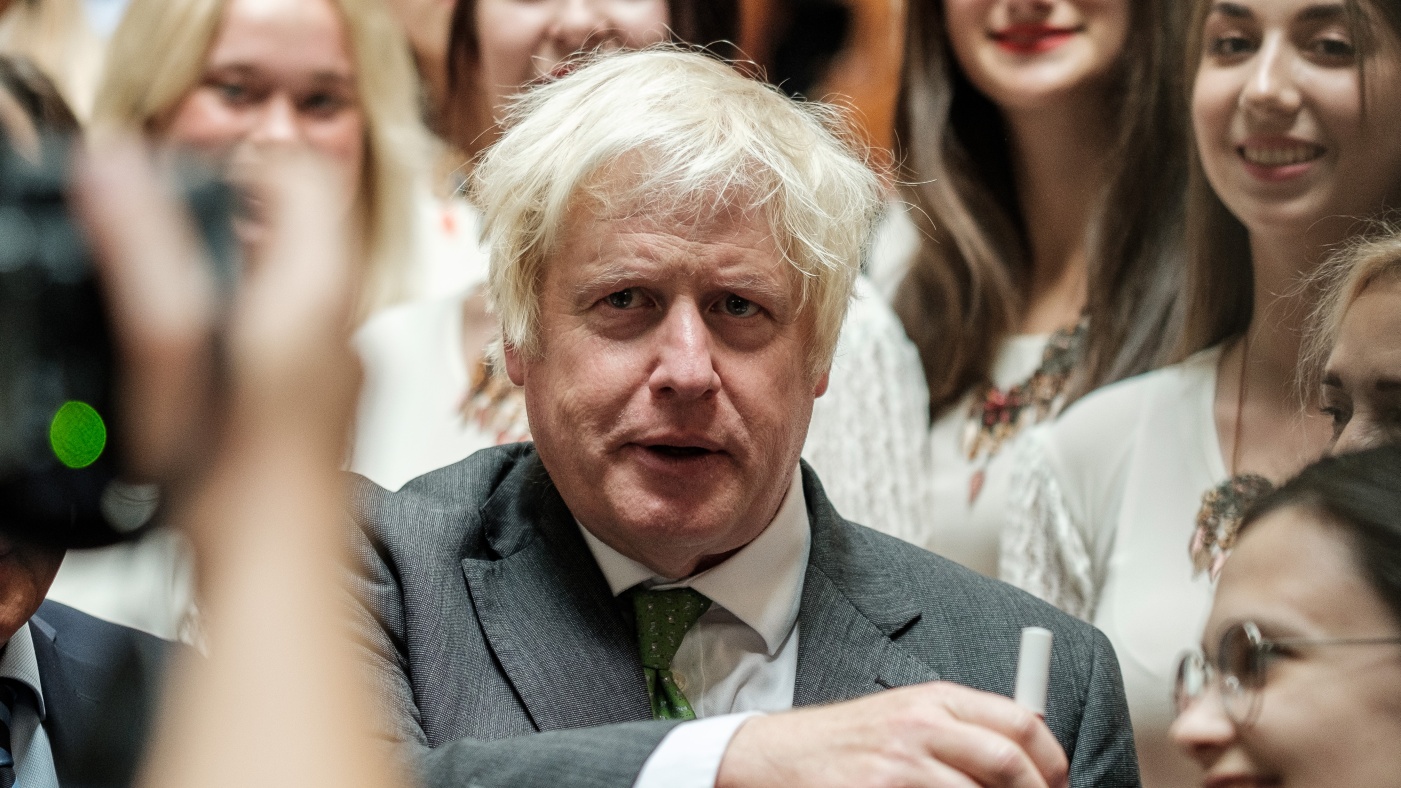Covid inquiry: the most important questions for Boris Johnson
Former PM has faced weeks of heavy criticism from former colleagues at the public hearing

A free daily email with the biggest news stories of the day – and the best features from TheWeek.com
You are now subscribed
Your newsletter sign-up was successful
Boris Johnson will come under scrutiny for his government's response during the first year of the pandemic as he faces the Covid inquiry this week.
The former prime minister will give evidence on Wednesday and Thursday, ahead of an appearance by Rishi Sunak next week.
Johnson is likely to face several "difficult" questions, including over his decision-making during the Covid-19 crisis and claims that he said he would rather "let the bodies pile high" than impose another lockdown, said The Mirror.
The Week
Escape your echo chamber. Get the facts behind the news, plus analysis from multiple perspectives.

Sign up for The Week's Free Newsletters
From our morning news briefing to a weekly Good News Newsletter, get the best of The Week delivered directly to your inbox.
From our morning news briefing to a weekly Good News Newsletter, get the best of The Week delivered directly to your inbox.
And while the ex-leader "is expected to apologise" and acknowledge his government got things wrong during the pandemic, said the BBC, he will "also argue his government got many of the big calls right".
Scrutinising the 'early days'
There have been "repeated suggestions" Johnson did not fully appreciate the dangers when Covid began to spread rapidly at the start of 2020, said The Guardian.
Scientists who sat on the government's scientific advisory group, Neil Ferguson and Graham Medley, both told the inquiry that by February 2020 they were "worried the NHS was going to be overwhelmed", said the BBC. But despite their fears, Johnson failed to hold an emergency Cobra meeting until the following month.
WhatsApp messages from Dominic Cummings – then Johnson's chief of staff – reveal that after the meeting, Johnson still didn't fully grasp the severity of the situation. Johnson "doesn't think it's a big deal", Cummings wrote in a message released by the inquiry.
A free daily email with the biggest news stories of the day – and the best features from TheWeek.com
The former PM will "surely be asked about his response in those early days", said the BBC, including whether he should have "acted sooner".
Johnson will reject claims that he was distracted during the February 2020 half-term because he was writing his as-yet-unpublished book "Shakespeare: The Riddle of Genius" at Chevening, the grace-and-favour mansion in Kent, said The Telegraph. He will cite diaries showing that he returned to No. 10 for meetings during this time.
But this defence, said the paper, "is sure to be scrutinised by the inquiry's legal team, which has at points expressed alarm at the lack of written proof of work on Covid during that period".
Questions on the 'bombshell' claims
The former PM has also repeatedly denied claims that he said he was willing to "let the bodies pile high" in the autumn of 2020. But the alleged outburst has been given "more credibility" after one of his "long-term allies" and former chief of staff Lord Udny-Lister told the inquiry that he heard Johnson make the statement in opposition to a third national lockdown, said The Guardian. Udny-Lister described it as "an unfortunate turn of phrase" used under intense pressure.
Johnson "will be asked under oath if he still denies making the remarks", said The Mirror. He'll also be questioned on other "bombshell" claims from the diaries of Patrick Vallance, the government's former chief scientific adviser, such as allegations that he argued Covid-19 is "just nature's way of dealing with old people".
One of the most "unexpected" claims to emerge from the inquiry is that Johnson allegedly asked scientists if people could kill Covid by blowing a hairdryer up their nose, after he watched a YouTube video, said The Mirror.
Vallance told the inquiry that Johnson was often "bamboozled" by graphs and added that watching him "get his head round stats is awful".